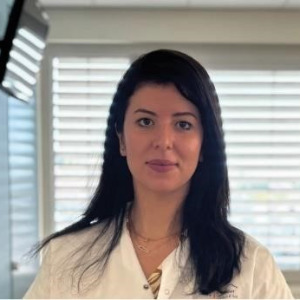Cancer Vaccines & Oncolytic Platforms
Innovative immunotherapy approaches are transforming cancer treatment by leveraging the body’s immune system to selectively target tumor cells. Cancer Vaccines & Oncolytic Platforms represent two cutting-edge strategies that stimulate antitumor immunity while minimizing harm to healthy tissues. Cancer vaccines are designed to educate the immune system to recognize tumor-specific antigens, promoting durable immune responses that can prevent disease progression or recurrence. Oncolytic platforms utilize engineered viruses that selectively infect and destroy cancer cells while simultaneously activating systemic antitumor immunity. Together, these approaches provide a dual mechanism of action—direct tumor cell killing and immune system priming—offering promise for patients across various cancer types.
The field of Cancer Vaccines & Oncolytic Platforms is rapidly advancing through preclinical research and clinical trials exploring novel antigens, viral vectors, and combination therapies. Integration with immune checkpoint inhibitors, adoptive cell therapies, and conventional treatments has shown potential to enhance therapeutic efficacy and overcome tumor immune evasion. Biomarker-driven patient selection and personalized vaccine design are further improving response rates and minimizing adverse effects. As understanding of tumor immunology deepens, these platforms are poised to become central components of precision oncology, offering adaptable and individualized strategies that harness the body’s own defenses. By combining innovation, specificity, and immune activation, cancer vaccines and oncolytic therapies represent a promising frontier in achieving long-term remission and improving patient outcomes.

Rajvir Dahiya
University of California San Francisco, United States
Atif A Ahmed
University of Washington-Seattle Children’s Hospital, United States
Thomas J Webster
Northeastern University, United States
Paulo Cesar De Morais
Catholic University of Brasilia, Brazil
Allen Chen
Olympic Medical Center, United States
Shilpa S Dhar
UT MD Anderson Cancer Center, United States



Title : A novel blood-based mRNA genomics technology for cancer diagnosis and treatment
Rajvir Dahiya, University of California San Francisco, United States
Title : Nanomedicine in humans: 30 years of fighting diseases
Thomas J Webster, Northeastern University, United States
Title : Diagnosis and treatment of primary cardiac lymphoma in an immunocompetent 27-year-old man
Moataz Taha Mahmoud Abdelsalam, Madinah Cardiac Center, Saudi Arabia
Title : tRNA-derived fragment 3′tRF-AlaAGC modulates cell chemoresistance and M2 macrophage polarization via binding to TRADD in breast cancer
Feng Yan, The Affiliated Cancer Hospital of Nanjing Medical University, China
Title : Multiplexed biosensor detection of cancer biomarkers
Michael Thompson, University of Toronto, Canada
Title : Personalized and Precision Medicine (PPM) through the view of biodesign-inspired translational research: An option for clinical oncologists, caregivers, and consumers to realize the potential of genomics-informed care to secure human biosafety
Sergey Suchkov, N.D. Zelinskii Institute for Organic Chemistry of the Russian Academy of Sciences, Russian Federation